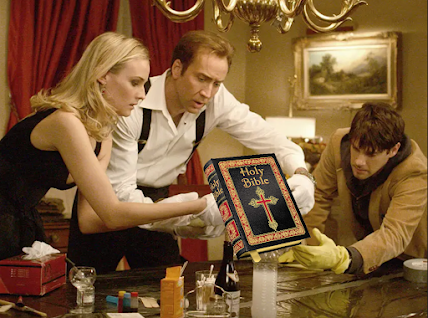Unless I am convinced by the testimony of the scriptures or by clear reason (for I do not trust either in the pope or in councils alone, since it is well known that they have often erred and contradicted themselves), I am bound by the scriptures I have quoted and my conscience is captive to the word of God. I cannot and I will not retract anything, since it is neither safe nor right to go against conscience — Martin Luther
Taking it for granted, that a universal council is a true representation of the Church, they set out with this principle, and, at the same time, lay it down as incontrovertible, that such councils are under the immediate guidance of the Holy Spirit, and therefore cannot err. But as they rule councils, nay, constitute them, they in fact claim for themselves whatever they maintain to be due to councils. Therefore, they will have our faith to stand and fall at their pleasure, so that whatever they have determined on either side must be firmly seated in our minds...And that my readers may the better understand the hinge on which the question chiefly turns, I will briefly explain what our opponents demand, and what we resist. When they deny that the Church can err, their end and meaning are to this effect: Since the Church is governed by the Spirit of God, she can walk safely without the word; in whatever direction she moves, she cannot think or speak anything but the truth, and hence, if she determines anything without or beside the word of God, it must be regarded in no other light than if it were a divine oracle — John Calvin
[H]ow many Absaloms have there been in our age, who, to seduce and distort the people of Our Lord from obedience to the Church and her pastors, and to lead away Christian lealty into rebellion and revolt, have cried up and down the ways of Germany and of France: there is no one appointed by God to hear doubts concerning the faith and to answer them; the Church itself, the rulers of the Church, have no power to determine what we are to hold as to the faith and what we are not; we must seek other judges than the prelates, the Church can err in its decrees and rules. But what more hurtful and audacious proposition could they make to Christianity than that? If then the Church can err, O Calvin, O Luther, to whom shall I have recourse in my difficulties? To the Scripture, say they. But what shall I, poor man, do, for it is precisely about the Scripture that my difficulty lies — St. Francis de Sales
Here, possibly, some one may ask, Do heretics also appeal to Scripture? They do indeed, and with a vengeance; for you may see them scamper through every single book of Holy Scripture — through the books of Moses, the books of Kings, the Psalms, the Epistles, the Gospels, the Prophets. Whether among their own people, or among strangers, in private or in public, in speaking or in writing, at convivial meetings, or in the streets, hardly ever do they bring forward anything of their own which they do not endeavour to shelter under words of Scripture. Read the works of Paul of Samosata, of Priscillian, of Eunomius, of Jovinian, and the rest of those pests, and you will see an infinite heap of instances, hardly a single page, which does not bristle with plausible quotations from the New Testament or the Old — St. Vincent of Lérins























